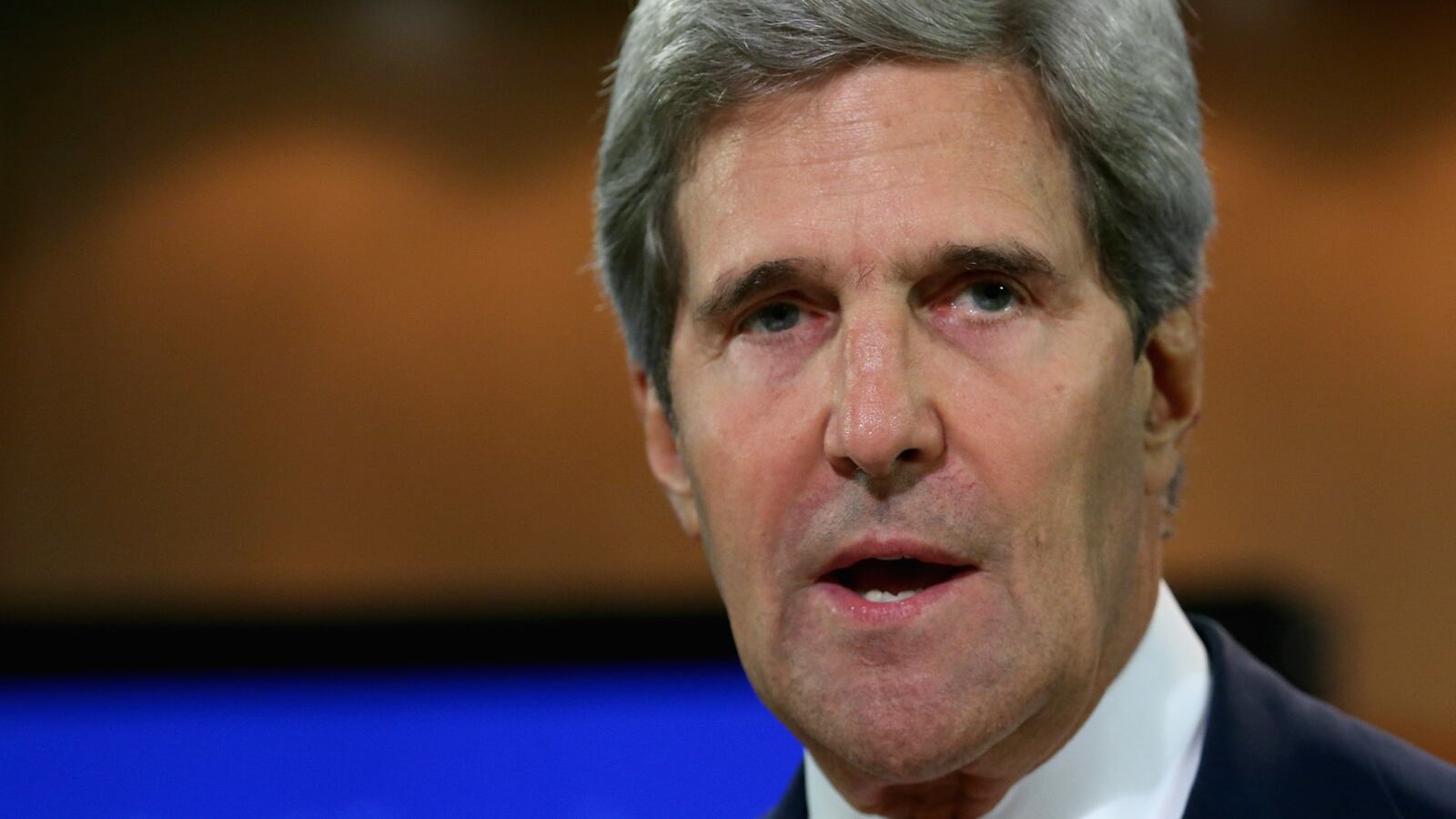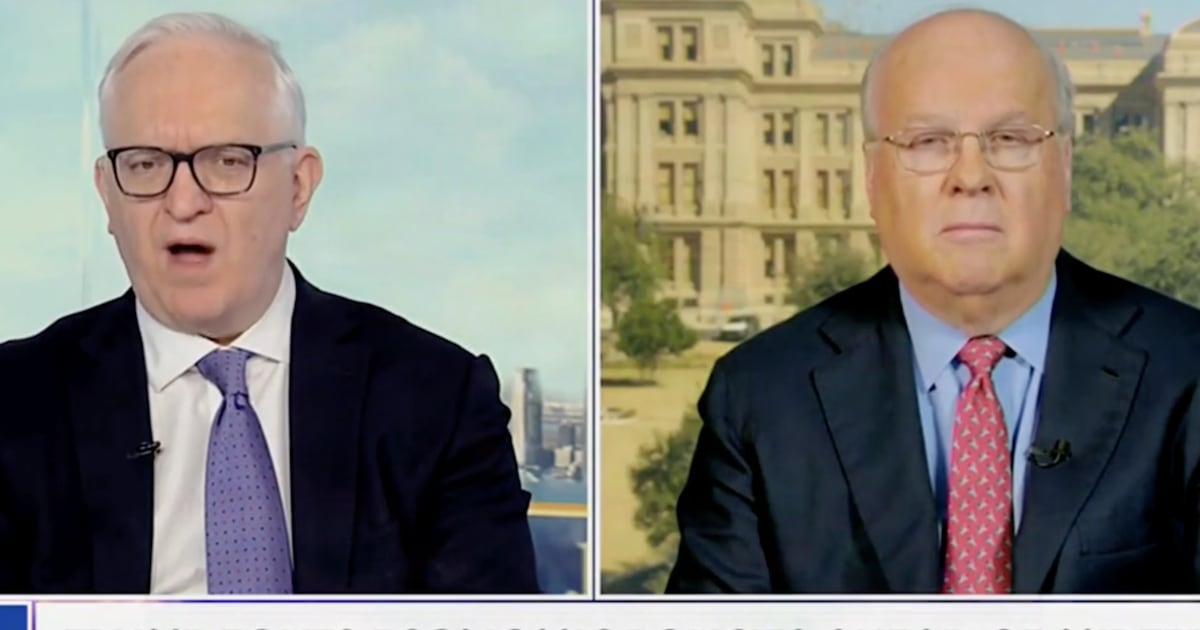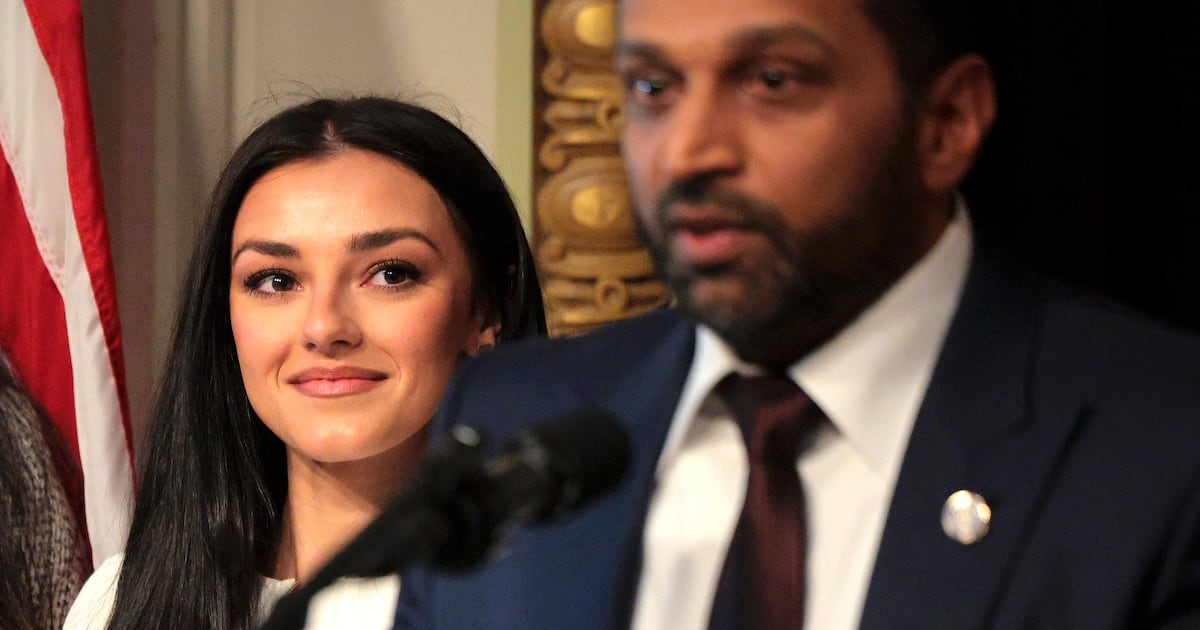Secretary Kerry's trenchant, rallying speech laid out the case, but he and President Obama surely know that attacking Assad in ways constrained by their corresponding principles of action—"no boots on the ground," "limited in scope," or, as former ambassador Ivo Daalder put it on the PBS Newshour, "a punitive strike ... to send a message to the regime that this kind of behavior is unacceptable"—is something like trying to stabilize the picture on an old TV set by smacking it. What good it does bears no relationship to how good it feels.

Anticipating Kerry's speech, I checked in again last night with my friend Charles Glass in London, a reporter who knows Syria and Lebanon as intimately as any American. A graduate of American University of Beirut, he's covered the region for 40 years; he was once held hostage by Hezbollah, accompanied the invasion of Iraq, and reported from Aleppo last year. He was preparing to fly to Damascus as we spoke.
And I came away from our conversation believing what Kerry surely understands, that there are essentially two strategic choices for the U.S., the first diplomatic, the second, significant armed intervention. Neither presumes that a limited military action is a "message," unless, that is, the intended recipient is not Assad, but Lindsay Graham.
Let's get things straight. Syria is now fractured into zones controlled by 1) Assad, armed by Russia and backed by Iran, 2) Hezbollah, backing Assad's Alawite Shi'a sect, 3) the Kurds, always looking for ways of unifying the Kurdish homeland on the Iraqi border, 4) an insurgent Sunni-Islamist group, Jadhat al-Nusra—admiring (if not loyal to) Iraqi al Qaeda—and, 5) a (more or less) secular and (more or less) puny Free Syrian Army, the heart of an opposition ("maybe 1,200 free-floating groups") backed by Qatar, and led ("this month, anyway") by Ahmad Jarba, with ties to Saudi Arabia.
The war has seen 100,000 deaths; it is not to the credit of journalists that we can write such words and keep our equanimity. The economy outside of Damascus is in a state of almost complete collapse. The war has moreover taken on an increasingly religious-sectarian caste, as it had in Iraq; the Shi'a extremists of Hezbollah have entered to preempt the Sunni extremists of Jabhat al-Nusra, but in Iraq the Sunnis were in the minority and in Syria they are the overwhelming majority, though Assad's Shi'a have overwhelming firepower, especially around Assad's capital.
Which is another way of saying the parties are fighting for their lives and the war is stalemated. Assad can never win back countrywide legitimacy. But it is not clear that the forces of his failed state can be defeated. Israelis will not panic if Assad holds out, and will certainly not engage in military action to defeat him, since his regime is the devil it has known for two generations. Israelis know that whoever attacks Assad for real will have to neutralize his Air Force, and that means attacking his anti-aircraft batteries, which also means attacking Russian advisers.
But Israelis do care if Iran, trying to defend is client, puts boots on the ground near its border; and it cares if Assad gets too comfortable using chemical weapons, which could ultimately fly into its own cities. Then again, Israel also fears that any insurgents who could defeat Assad would be dominated by jihadist terror groups linked to Iraqi extremists. It would be a nightmare if they gained access to Assad's chemical weapons too.
Whatever happens, a clear-cut winner in Syria might well try to rally the divided country by confronting the Zionist enemy. Turkey, for its part, would like to see Assad gone, and the Kurdish areas quieted, since a separatist spirit there might spill over the Turkish border. About half a million refugees are now in Jordan, just under half a million in Turkey, and well over half a million in Lebanon. Continuing war may ignite Jordanian insurgents, too. On all sides, ordinary civilians want an end to violence more than any victory, but they are also afraid of the other side's massacres.
So if America intends to make a difference, it can do either of two things. It can try harder to contain the violence, hence, madness, by working with the Russians to pressure Assad, and with the Qatar and Saudi regimes to pressure the insurgents; the only plausible objective is a transitional agreement ("... just let Assad serve out his term, which ends next year, then have an election and take the consequences"). Alternatively, America could declare Assad and his regime war criminals, and use overwhelming air power to try to kill him, or, as in Libya, degrade his Air Force and heavy weapons, which he uses to advantage over the insurgency.
Anything else may "make Americans feel better," but will change nothing on the ground, Glass says. Assad is fighting for his life, cares nothing about global standards, and does not fear more punishment. "And how much better will Americans feel if a cruise missile hits an apartment building?"
Diplomacy may not immediately resolve much on the ground—that's true. "As in Lebanon, this kind of fighting can go on for 15 years," Glass says. But some kind of provisional agreement might turn the fighting into a low-grade conflict, and one can count on the widespread revulsion ordinary people have for war to keep a messy peace. "Kerry tried this last spring; Putin seemed able to deliver Assad's people to Geneva, but Kerry did not sufficiently pressure the Saudis and Qatar to deliver the heads of the FSA and other opposition groups." The latter is fragmented, but an agreement signed by even a small leadership, inside and outside of Syria, would carry moral weight. "You give them guns, you have leverage."
And what if America did here what was done to Gaddafi? "This will not end the bloodshed; in fact, it will ramp up the violence in the short run, for Assad will feel less confident about holding territory and many opposition groups will be emboldened." Again, the Lebanon experience seems the only relevant one. Besides, a large-scale American attack will almost certainly activate a Hezbollah attack on Israel, to try to unify the forces of Allah against the most commonly hated enemy.
The saddest thing, Glass agreed, is that if we know all of this, Obama, Kerry, and Ambassador Ford do, too. (Actually, I was in a room last spring in which Ford framed things pretty much in this way.) There really isn't much that can be done militarily unless we are prepared to change the regime and risk the consequences, including an Alawite insurgency, meaning a Lebanon-style mess instead of a Syrian-style one.
Intervening with force to reestablish international standards regarding war crimes may seem noble, but in some contexts, the use of a machete is a war crime. And the idea that American power is degraded by a president who doesn't make good on one threat confuses power with momentary prestige. The world is not high school.
Short of taking down Assad's regime, then, the only serious strategy is diplomacy and Putin is the only serious partner. Once the smoke clears from the "limited attack" we are about to have, this portion will be, at best, what Obama and Kerry are left with. They may assert, as Kerry gingerly implied in his speech, that an attack will hasten such diplomacy. Perhaps—though getting past Edward Snowden would have hastened this, too. Anyway, I wonder if Kerry is not now on a plane to Moscow because he fears being called indecisive by the kind of Kissingerian gamers who kept him in Vietnam. And I wonder what new messages Assad is preparing in return.






